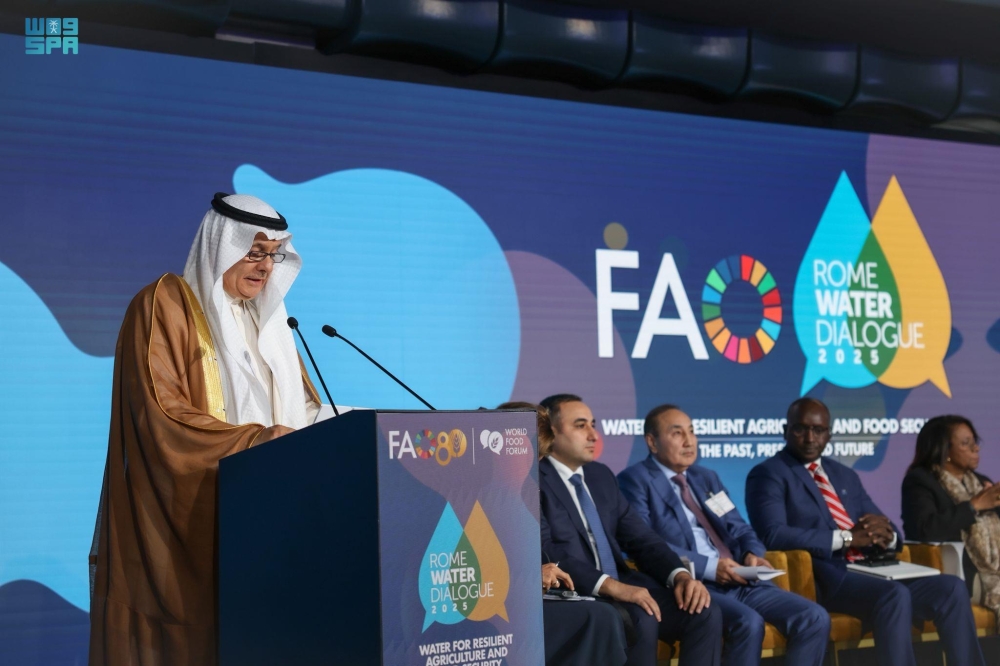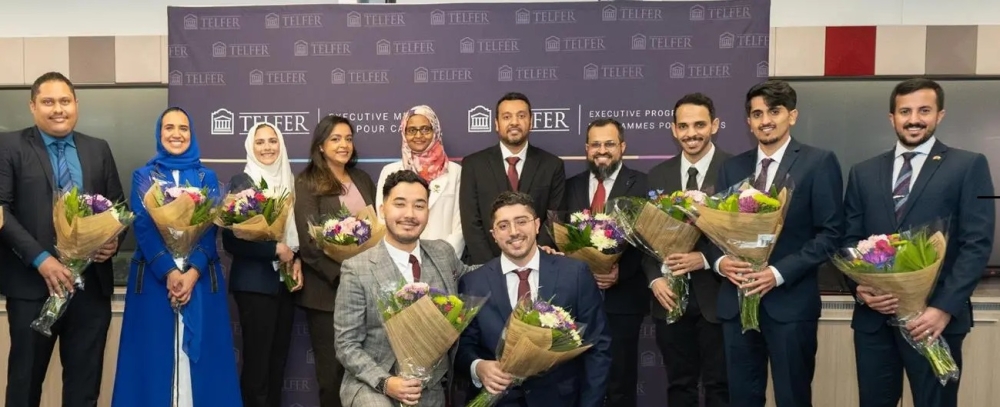
The Minister of Environment, Water, and Agriculture confirmed that the Kingdom is moving forward with launching its international initiatives through the Global Water Organization, which aims to unify international efforts and enhance cooperation to find sustainable solutions to water challenges and address increasing global water stress.
He explained the Kingdom’s efforts to find financing solutions, exchange expertise in policies and integrated management, and activate links between various sectors such as environment, agriculture, energy, and health. This contributes to creating an enabling environment for effective water management, with a focus on private sector involvement.
Rome Water Dialogue
This came during the Minister’s participation in the “Rome Water Dialogue” within the Global Food Forum organized by the Food and Agriculture Organization of the United Nations (FAO) in Rome, coinciding with the celebration of the organization’s 80th anniversary.
The Global Water Organization has a great opportunity for success through challenge and cooperation among its members
He confirmed that the Kingdom holds global leadership in desalinated water production, being the largest water producer in the world with a capacity exceeding 16 million cubic meters per day. Through harnessing research, innovation, and building engineering capabilities, energy consumption has been reduced by approximately 50%, and costs have been lowered to the lowest global levels.
He continued: The Kingdom also possesses massive infrastructure for transporting water over distances exceeding 19,000 kilometers and elevations reaching three thousand meters. Water networks cover more than 82% of populated areas in the Kingdom, and there are promising opportunities to achieve feasibility in using low-salinity water for agricultural purposes. This aims to reduce stress on non-renewable water sources and optimize water use while enhancing sustainability through implementing an integrated water resources management approach.
Desalinated Water
He explained the signing of 25 contracts with private sector participation for several projects with investment volumes exceeding 104 billion riyals, including desalinated water production, transportation, and reuse projects. Additionally, the Kingdom has become an incubating environment for research and innovation, relying on scientific evidence in formulating sectoral policies and investing in knowledge and technology to achieve sustainability. The Kingdom aims to reduce water production costs by 50% and decrease non-renewable groundwater consumption by 90% by 2035.
He continued: A cloud seeding program has also been launched, utilizing various technologies and aircraft operated by national personnel. There have been 711 flights, resulting in a noticeable increase in rainfall estimated at 6.4 billion cubic meters, contributing to enhancing water sources. This represents part of the initiatives taken by the Kingdom to achieve food security and water source sustainability.
National Water Strategy
The Minister indicated that Saudi Vision 2030 brought about a qualitative shift in the water sector in the Kingdom, represented by the approval






